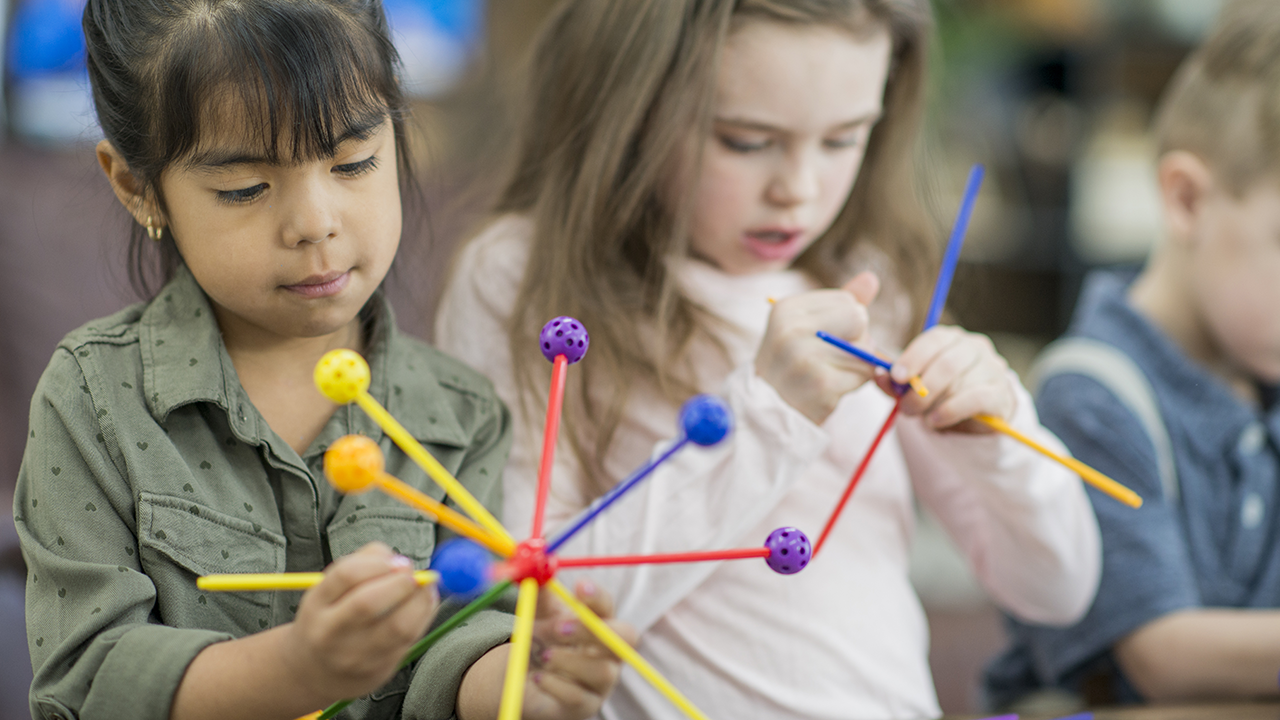
Early learning sets the stage for a child’s future success, but only half of all children entering kindergarten in Minnesota are ready for school—and the situation is similar across the US as a whole.
A University of Minnesota researcher is studying what early education programs can do to change that. Arthur J. Reynolds, Ph.D., professor in the Institute of Child Development at the College of Education and Human Development, researches the types of interventions and practices that make a big difference early on in children’s educations. A crucial part of that is making sure that the things children learn and the way they develop during prekindergarten (or “pre-K”) education stick with them in later schooling.
There’s a misconception, Reynolds said, that the educational benefits children experience between birth and age 5 “fade out” before they get much older, but research shows that’s not the case.
“Some of the foundational skills, attitudes, and behaviors get established much earlier than we thought 20 years ago,” he said. “Having positive learning experiences really builds a foundation for later years.”
So why are so few children kindergarten-ready? It’s not that they’re skipping pre-K education altogether; over 80 percent of 4 year olds are in some kind of out-of-home childcare environment where their language and cognitive skills can develop. Instead, it’s the quality of the programs available that affect whether children benefit in the long-term, Reynolds said.
That led him to team up with Judy Temple, Ph.D., professor in the Humphrey School of Public Affairs, to put together the first book of its kind on the best practices for promoting lasting development in the first decade of life. Sustaining Early Childhood Learning Gains, which was just published, brings together research by leading experts in the fields of early childhood education, human development, and behavioral science. It also highlights the role that schools, families, communities, and public institutions can play in improving pre-K education and in ensuring that kindergarten through 3rd grade reinforce and extend on the earlier years.
Reynolds said the book looks at early childhood as the entire first decade of life, leading up through the 3rd grade, to better focus on the continuum of learning and developmental experiences children go through during this time and how programs and research approaches can support them.
The book’s development was funded by the National Institute of Child Health and Human Development, the Bill & Melinda Gates Foundation, and the US Department of Education. In addition to researchers from the U of M, contributors include experts from the University of North Carolina-Chapel Hill, the University of California-Irvine, Rutgers University, Stanford University, HighScope, the Erikson Institute, and others.
Among the practices included in the book to improve pre-K programs are keeping class sizes to 17 children or less for a better children-to-adult ratio, offering full-day rather than part-day preschool, and ensuring teachers have sufficient credentials. In all of these best practices, Reynolds said, it’s important to balance the costs of improvements to ensure programs don’t become too expensive for lower-income families to access.
“It’s really hard to replicate what you find in the programs where you have unlimited resources,” he said. “You have to pay a lot of attention to implementation. In collaborating with districts and programs in Minnesota and other states, we are seeing evidence from our scale-up work in the Child-Parent Centers that strong effects are possible. Small classes, well-supported teachers and parents, and engaged learning experiences in the classroom are key to sustaining impacts.”
Fortunately, Reynolds said there is an ongoing trend of increasing interest and funding for pre-K programs that can help support better-quality programs. Going forward, he hopes the book will give policymakers and practitioners—such as legislators, state education department leaders, and school district leaders—the knowledge and awareness they need to bring positive change to their area’s programs.
“We need to have a better understanding of what quality means for early childhood education and that the entire pre-K to 3rd grade continuum is integrated well,” he said. “I think it is becoming a much higher priority.”
Reynolds and Temple are co-directors of the U’s Human Capital Research Collaborative, which promotes public policies and programs for young people through multidisciplinary research from the prenatal period through early adulthood.